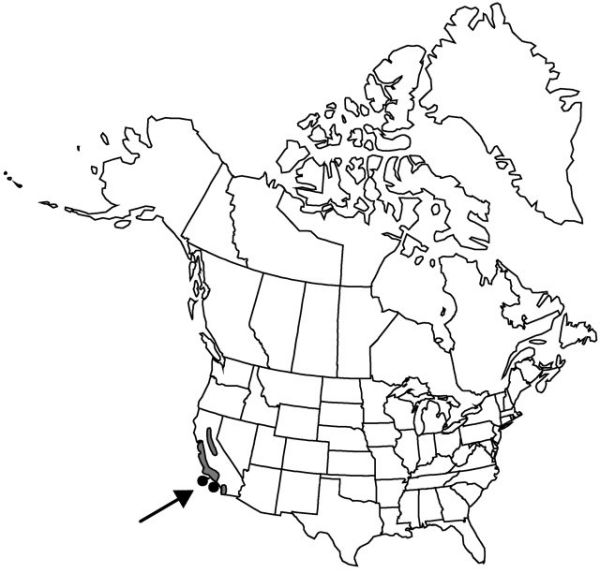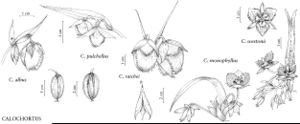Calochortus albus
Botanist 2: no. 98. 1838.
Common names: White globe-lily fairy lantern
IllustratedEndemic
Basionym: Cyclobothra alba Bentham Trans. Hort. Soc. London, ser. 2, 1: 413, plate 14, fig. 3. 1835
Synonyms: Calochortus albus var. rubellus Greene
Stems usually branching, 20–80 cm. Leaves: basal persistent, 3–7 dm; blade linear, flat. Inflorescences 2–many-flowered. Flowers nodding; perianth ± closed at apex, ± oblong; sepals appressed to petals, ovate to lanceolate, 10–15 mm, glabrous, apex acuminate; petals usually white to pink, ± elliptic, 20–25 mm, sparsely ciliate, hairs distal to gland slender; glands ± depressed, proximal ciliate membrane 1/3–2/3 petal width; filaments equaling anthers; anthers oblong, apex obtuse or acute. Capsules nodding, winged, oblong, 2–4 cm, apex obtuse or acute. Seeds dark brown, irregular. 2n = 20.
Phenology: Flowering mid spring–mid summer.
Habitat: Shaded places in open woods and brush
Elevation: 0–2000 m
Distribution
Loading map...

Calif.
Discussion
Selected References
None.
Lower Taxa
None.
